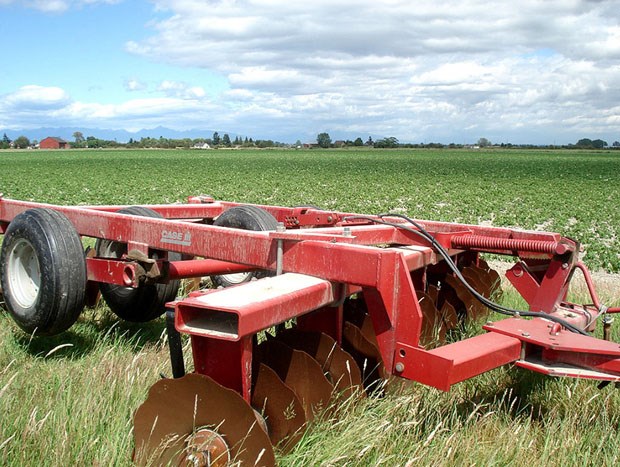Delta South MLA Ian Paton introduced a private member’s bill Monday aimed at protecting Brunswick Point farmland and bird habitat from development.
“Brunswick Point is an incredibly special piece of land that borders the ocean and the Fraser River, with beautiful walking trails,” Paton stated in a news release.
“This farmland also boasts exceptional Class 1 soil that grows B.C.’s very best potatoes— but most importantly, this area is world-renowned as a resting stop for migrating birds,” the Liberal co-critic for agriculture said.
Paton noted the history of Brunswick Point has been a long and painful one for several Delta farm families. In 1968, 4,000 acres of prime farmland was expropriated to support the port being built at Roberts Bank.
Many years later, after realizing the expropriated land was not needed for port purposes, the province offered to sell most of the farms back to their original owners. However, just over 600 acres of Brunswick Point farmland was held back by the Crown, only offered to the farm families through short-term leases.
“It is vitally important that these precious 600 acres of farmland continue to be held by the Crown be kept for agriculture and wildlife habitat in perpetuity, and be offered back to local farmers with long-term leases,” added Paton. “It’s my hope the NDP will call this bill for debate so we can resolve this painful history and protect this unique place for generations to come.”
The future of Brunswick Point, which is in proximity to the port, remains as murky as it did when the province expropriated large swaths of the area five decades ago.
The province’s expropriation in the late 1960s was described "a land grab" by many.
At the time, W.C. Mearns, B.C. Harbours Board chairman, said a deep sea port would likely require another 20,000 acres to meet future requirements. That industrial development never occurred and, by the late 1990s, many of the farmers that had lost their lands, but were allowed to remain and lease them from the province, were given an opportunity to buy them back. However, the Tsawwassen First Nation in its treaty settlement a decade ago was granted the right of first refusal to purchase the Brunswick Point lands if they were to go on the market.
In an interview a couple of year ago, longtime farmland advocate and Richmond city councillor Harold Steves, who helped create the ALR when he was a New Democrat MLA in the early 1970s, said if the TFN grabbed control of Brunswick Point, it's "game over" for farming in Delta. And if the optioned farmland was sold to the port, it would likely use the argument the land falls under federal jurisdiction, so it does not have to abide by municipal or provincial regulations, he warned.
The City of Delta’s submission to the independent review panel on the Port of Vancouver’s proposed Terminal 2 expansion includes a warning about the development putting increased pressure on farmland.
“The Vancouver Fraser Port Authority has stated that construction of Terminal 2 will require 2,500 acres of well-located developable industrial land by 2035,” a civic report states, noting this is problematic given the industrial land inventory of Metro Vancouver (currently estimated at 6,000 acres) is expected to be exhausted in a few years.
“VFPA acknowledges that, although it is a ‘last resort’ option, it will look at options for industrial uses of agricultural lands to accommodate the land demand from RBT2, if necessary.”



